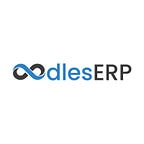Best Ways to Improve Cloud ERP with AI and Machine Learning
Introduction to Cloud ERP Integration with AI and Machine Learning
In today’s rapidly evolving digital landscape, Cloud ERP systems are at the forefront of transforming businesses by streamlining operations and enhancing efficiency. Coupled with Artificial Intelligence (AI) and Machine Learning (ML) technologies, Cloud ERP solutions have become even more powerful, offering predictive analytics, automation capabilities, and data-driven insights that were previously unimaginable.
Leveraging AI for Enhanced Data Insights
Artificial Intelligence has revolutionized the way businesses manage and utilize data within Cloud ERP systems. AI-powered algorithms can analyze vast amounts of data in real-time, extracting valuable insights that drive informed decision-making. For instance, AI can predict market trends based on historical data patterns, optimize supply chain operations by forecasting demand, and even personalize customer experiences through advanced analytics.
Predictive Analytics in Cloud ERP
Predictive analytics, a subset of AI, enables organizations to forecast future trends and behaviors based on historical data. Within a Cloud ERP environment, predictive analytics algorithms can analyze customer purchasing patterns, detect potential risks in supply chain management, and optimize inventory levels to prevent stockouts or overages. By leveraging predictive analytics, businesses can proactively address challenges and capitalize on opportunities, thereby gaining a competitive edge in the market.
Enhancing Automation with Machine Learning
Machine Learning algorithms embedded in Cloud ERP systems enhance automation capabilities, allowing repetitive tasks to be performed with minimal human intervention. For example, ML can automate routine accounting processes, streamline HR workflows such as payroll management, and optimize manufacturing operations by adjusting production schedules in real-time based on demand forecasts.
Adaptive Learning Algorithms
Machine Learning models continuously learn from new data inputs, adapting and improving their accuracy over time. In the context of Cloud ERP, these adaptive algorithms can autonomously detect anomalies in financial transactions, recommend personalized marketing strategies based on customer behavior patterns, and optimize resource allocation across various departments to maximize operational efficiency.
Real-Time Decision-Making with AI-Driven Insights
One of the most significant advantages of integrating AI and Machine Learning into Cloud ERP systems is the ability to make real-time, data-driven decisions. Traditional ERP systems relied on historical data for decision-making, often resulting in reactive strategies. With AI-driven insights, businesses can analyze current data streams, identify emerging trends or issues, and promptly respond with proactive measures.
Case Study: AI in Financial Forecasting
In a case study conducted by a leading financial services firm, integrating AI into their Cloud ERP system revolutionized financial forecasting. By analyzing market data, economic indicators, and customer spending patterns in real-time, the firm’s CFO could make agile decisions, adjust investment strategies dynamically, and mitigate financial risks more effectively than ever before.
Security and Compliance in AI-Powered ERP Systems
Concerns about data security and regulatory compliance are paramount when integrating AI and Machine Learning into Cloud ERP solutions. Advanced encryption protocols, robust authentication mechanisms, and compliance with industry standards such as GDPR and CCPA ensure that sensitive data remains protected. Furthermore, AI algorithms can detect and respond to security threats proactively, minimizing the risk of data breaches or unauthorized access.
Ethical Considerations and Transparency
As AI technologies continue to evolve, ensuring ethical use and transparency in AI-driven Cloud ERP systems is crucial. Businesses must prioritize fairness, accountability, and transparency (FAT) principles in their AI deployments, avoiding biases in algorithmic decision-making and providing clear explanations for AI-generated insights.
Conclusion
Integrating Artificial Intelligence and Machine Learning into Cloud ERP systems represents a paradigm shift in how businesses operate and compete in the digital age. By harnessing AI-driven insights for predictive analytics, enhancing automation with ML-powered workflows, and prioritizing security and compliance, organizations can unlock new levels of efficiency, innovation, and strategic advantage.
Also Read: Transforming Retail Industry with Salesforce E-commerce Integration
